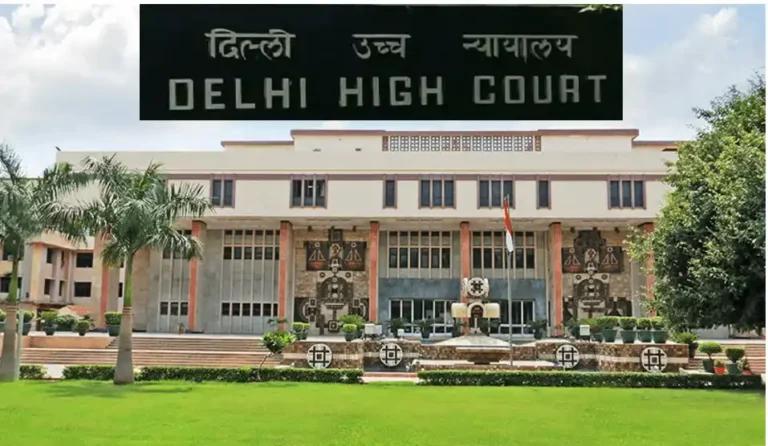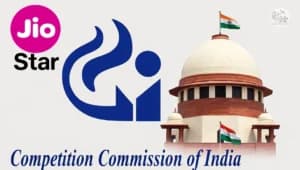The Delhi High Court, in a significant ruling, has laid down a comprehensive framework aimed at ensuring swift legal guidance and medical support to minor victims of rape seeking termination of pregnancies beyond 24 weeks.
Justice Swarana Kanta Sharma delivered this landmark judgment while hearing a case involving a 15-year-old rape survivor whose pregnancy had crossed the 27-week threshold. The Court not only granted permission for medical termination but also issued extensive guidelines for handling similar cases in the future.
"Victims of sexual assault, especially minors from economically disadvantaged backgrounds, often don't know which legal forum to approach or how to proceed in cases of pregnancy resulting from rape," Justice Sharma observed.
Case Background
The minor, referred to as 'S', was raped by her cousin on November 1, 2024, when her parents were away. Due to threats from the accused, she remained silent for months. Her pregnancy was discovered only in April 2025 after she missed her menstrual cycle. A medical examination confirmed that she was over 25 weeks pregnant.
The family approached LNJP Hospital for medical termination, but were verbally refused on the ground that the pregnancy had exceeded the legal limit of 24 weeks under the Medical Termination of Pregnancy Act, 1971 (amended in 2021). They were advised to obtain a court order.
Read also: Delhi High Court Cancels Trademark of ‘Captain Blue’ After Appeal by ‘Captain Morgan’ Maker Diageo
The case was first mistakenly taken to a trial court, which lacked jurisdiction, causing further delay. Eventually, legal help was sought through the Delhi High Court Legal Services Committee (DHCLSC), leading to the current writ petition.
Justice Sharma expressed deep concern over the delay and inaction by the hospital and other authorities despite prior directions from the Court.
"Despite directions issued nearly two years ago, hospitals are still waiting for court orders before conducting medical examinations in cases of pregnancies beyond 24 weeks due to rape. The ground situation sadly remains unchanged," said the Court.
The Court found that the LNJP Hospital delayed the Medical Board's examination by nearly a week even after the minor was produced before them under CWC's directions.
"The trauma faced by the victim, already burdened with the horrors of sexual assault, was further multiplied by the delay in action," remarked Justice Sharma.
- Immediate Action by CWC and Legal Services:
Whenever a minor rape survivor with pregnancy beyond 24 weeks is produced before a Child Welfare Committee (CWC), the CWC must immediately inform DHCLSC. This ensures that legal intervention is initiated without delay. - Confidentiality and Documentation:
The CWC must share necessary documents like the FIR, medical reports, and CWC orders without disclosing the victim's identity. - Timely Legal Intervention:
DHCLSC shall promptly assess and initiate court proceedings wherever necessary, especially when the victim or her guardian seeks abortion beyond 24 weeks. - Hospital and Medical Board Obligations:
Hospitals must conduct immediate medical examinations under the MTP Act without insisting on a prior court order. Medical Boards must be proactive and follow the law in both letter and spirit. - State Responsibilities:
- All costs of the medical termination, including medicine, food, and care, shall be borne by the State.
- If a child is born alive during the procedure, proper care must be ensured, and the CWC must take necessary legal steps.
- Preservation of Evidence:
Doctors are directed to preserve the fetus tissue for DNA testing as it may be crucial in the criminal case against the accused.
Though the MTP Act generally does not allow abortion beyond 24 weeks unless fetal abnormalities exist, the Court relied on its constitutional powers and Supreme Court judgments to allow it in cases of rape.
“Denying a rape survivor the right to abort would amount to denying her human right to live with dignity,” the judgment reads.
The Court invoked Explanation 2 of Section 3(2) of the MTP Act, which presumes mental agony in such cases to constitute grave injury to the mental health of the woman.
The Court reiterated its earlier rulings, particularly:
- Minor R Thr. Mother H v. State (NCT of Delhi) (2023)
- Minor L Thr. Guardian J v. State & Anr. (2023)
These directed that hospitals must not delay the process waiting for court orders. Instead, Medical Boards should conduct examinations immediately to prevent further trauma to the victim.
The Court appreciated the prompt efforts of the legal counsel, the Investigating Officer, and the DHCLSC in ensuring that the matter reached the High Court without further delay.
“This Court once again emphasizes the need for clarity, urgency, and compassion when dealing with such sensitive matters,” the judgment concluded.
The Registry has been directed to circulate this judgment to key authorities, including:
- Commissioner of Police, Delhi
- Delhi Judicial Academy
- Health Ministries (Delhi and Central)
- Delhi State Legal Services Authority
Title: MINOR S (THR. FATHER B) v. State & Anr















